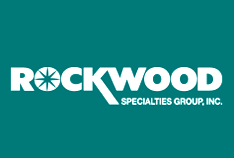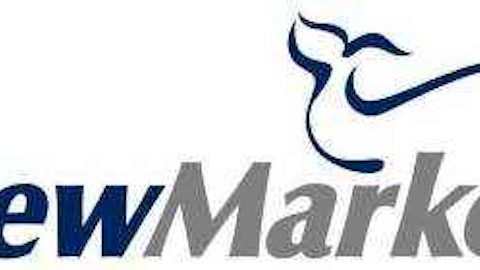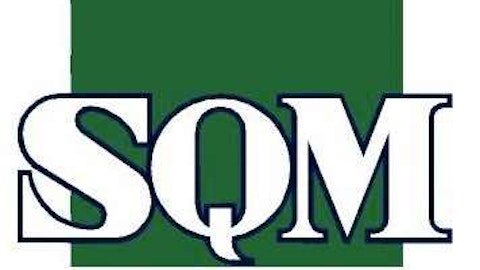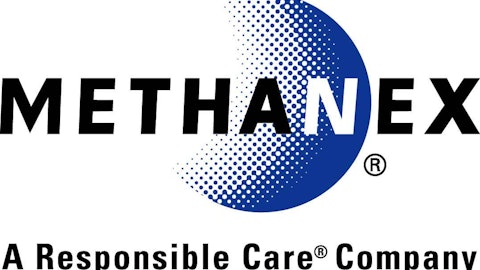Rockwood Holdings, Inc. (NYSE:ROC) is a global producer of specialty chemicals and advanced materials, with diverse end markets that include the automotive, medical, construction, and electronics industries.
Rockwood Holdings, Inc. (NYSE:ROC) has carved out an enviable position in several attractive chemical and materials markets, most notably lithium and advanced ceramics. Rockwood’s portfolio includes more than just lithium and ceramics, and many of the company’s commodity line products face fierce competition.

SQM, a Chilean chemical and mining company, is the world’s largest producer of potassium nitrate, iodine, and lithium. Sociedad Quimica y Minera (ADR) (NYSE:SQM) generated more than 85% of revenue outside of Chile in 2012. The company aims to maintain its industry-leading positions in specialty fertilizers, iodine, and lithium, while also grabbing a larger share of the global potash market.
SQM has continued to benefit from a growing lithium market, as devices that use lithium-ion rechargeable batteries make their way into the hands of more people around the globe. The company’s lithium operations increased sales 12% compared with the prior-year quarter. For the full year, sales increased 21%, driven by gains in both volume and price. I expect further volume gains in lithium as the company expands production to meet increased demand. SQM’s unique mineral assets in Chile allow the company to produce lithium and other chemicals at a low cost. As such, I think the company has a narrow economic moat.
Selling the Ceramics Business
Rockwood Holdings, Inc. (NYSE:ROC) has announced a plan to sell its ceramics business to a European private equity firm for roughly $2 billion. This doesn’t come as a big surprise, as management has previously said the ceramics business would be available at the right price. In 2012, the business generated EBITDA of $175 million, implying a purchase multiple of roughly 11 times. Management has signaled multiple times that it is looking to streamline its product offerings and focus more on lithium and surface treatment products. This transaction is a step in that direction, with the sale of the firm’s titanium dioxide arm as the next likely move.
First Quarter Results
Rockwood Holdings, Inc. (NYSE:ROC) holds a diverse portfolio of chemical and material businesses and performance was mixed across segments. On the positive side, the firm’s lithium business continued to post consistent and solid results. Leveraging key assets in the Atacama Desert of Chile, Rockwood enjoys a low-cost base for its lithium production. Lithium sales advanced 3.3% year over year, and adjusted EBITDA margin improved to 39.6% compared with 38.7% in the first quarter of 2012.
On the negative side of the ledger was Rockwood’s titanium dioxide business. Sales in the segment increased 21.3% year over year on higher volumes from recently acquired capacity, but profitability plummeted. TiO2-adjusted EBITDA margin came in at 3.1% compared with 33.6% in the prior-year period, as lower prices and capacity utilization decimated profitability.
In Tio2 Rockwood is facing another competitor: Tronox Ltd (NYSE:TROX). Tronox is a global leader in the production and marketing of titanium-bearing mineral sands and titanium dioxide pigment. It produces both the pigment and the raw material needed for production. Any turnaround would benefit both businesses greatly. The company might also be the most active in any industry consolidation. A significant purchase of assets on the pigment production side would help magnify the benefits of the company’s integration strategy.
In the first quarter Tronox Ltd (NYSE:TROX) posted some strong results, with revenue of $470 million, adjusted EBITDA of $73 million, and a margin of 15.5%. In the first quarter, 69 percent of titanium feedstock revenue was derived from intercompany sales, up from 59% in the fourth quarter 2012. Tronox also reported bigger sequential jumps of 23% in its TiO2 sales volume during their most recent quarter.




